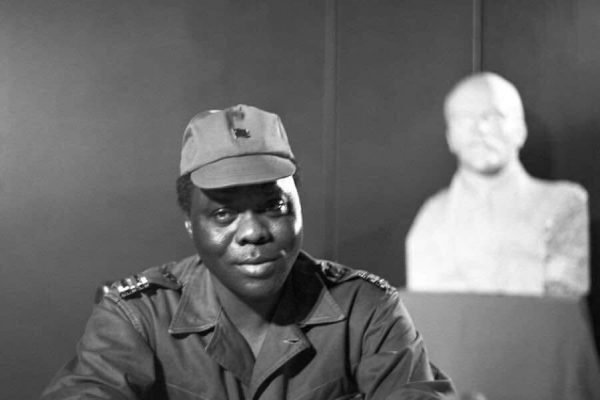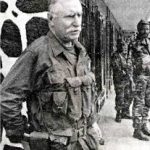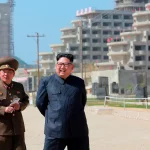Clearly, this article’s title is a massive clickbait but sometimes, events are so surprising that they are worth their own article on our blog, such is the curious event that happened on the 16th of January 1977. Yes, if general Mathieu Kérékou stayed in power after that day, it is truly owed to North Koreans.
A bit of history of Benin

Before we start and get in the thick of it, a bit of history catch-up is necessary. Benin, which was known as Dahomey, the name of the strongest of the seven kingdoms which made up the territory of the country, was for the longest time victim of the slave trade. Europeans would finance certain tribes and provide them with weapons so that they would reign supreme over the other tribes, enslave them and provide America and Europe with the slave power it thirsted for. Surely one of the saddest page of history, the troubles of Benin/Dahomey did not end after that page was turned. Once slavery died off, it is the French which settled in the country and turned it and certain of the neighbouring countries into their colonies. During colonial times, the people of Dahomey were frequently used for forced labour in order to fulfill colonial projects. Benin, like most West African countries, acquired its independence from France in 1960. Even then, its trouble were not at an end, as the country stumbled after its birth, plagued with political turmoil leading it into coups after coups. This wave of coups and takeovers ended with the arrival of Mathieu Kérékou who seized power over once last military coup. For the first two years of his reign, Kérékou was intending to lead the country without following foreign ideologies such as capitalism or socialism. However, in 1974, the country was renamed from Dahomey to… the People’s Republic of Benin (rings a bell?) and the country adopted Marxism Leninism as its main ideology. With the ideology came the whole usual package deal with its pros and cons: backing from the Soviet Union, planification of production, limited freedom of speech, enmity of the West, etc. The general had picked his side. And picking a side it was truly, as the general wasn`t much of a socialist before but his country needed legitimacy and a red dawn was rising over West Africa. Benin was socialist and the other side was not happy about that.
The coup

Ghana, Mali, Burkina Faso all espoused some kind of socialism as they were consolidating their independence and, strangely, all these regimes collapsed. Assassinations, coups, revolts, it is only many years later, when the principal actors were too old to be prosecuted, that the mystery was lifted. Most of these coups have been orchestrated by anti-socialist forces, often led by French expert mercenaries. Such an expert was Bob Denard. Mauritian-French, Bob Denard was a famous gun for sale who had orchestrated successful operations in Angola, Cabinda, Comores).
Bob Denard, with his team composed of a hundred of African and European mercenaries land in Cotonou airport around 7 AM. Their mission is called Opération Crevette (Operation Shrimp in English). Their plane, an old DC-7, land without invitation and they jump on the tarmac lock and loaded and ready to attack. Gunshots are heard, the alarm rings all over the city.
What will contribute to the failure of Denard is a surprising twist of fate. Unknown to him and his team, it happened that a contingent of North Korean experts were in the capital of Benin to train the locals according to cooperation accord between socialist countries. Taken aback by this unexpected support, Denard and his team fail in their attempt to strike important centres of the administration of Benin and are forced to retreat to their plane and flee to nearby anti-communist Gabon. The whole affair lasted three hours.
In their debacle however, the mercenaries left behind French-made weapons, 10 wounded mercenaries and more surprisingly, an important crate filled with intelligence aimed at helping them topple the socialist regime. Through those papers, the Beninese can trace the origins and sponsors of their aggressors. It is declared that the coup was financed by Gabon, Morocco and Togo, with the hand of France not far behind. Gabon and Togo were both worried to see a socialist neighbour strengthening. In the case of Morocco, it is said that is was as reprisal after Benin recognized the legitimacy of the Polisario Front, fighting for the independence of Western Sahara. The mercenaries of the attack were trained in Ben Guerir, Morocco and a land operation led by France and Togo was allegedly planed to follow this lightning attack.
The aftermath
Following this thwarted attempt to push him out of power, Kerekou stayed in power for a long time, until the fall of the Berlin wall loosened his grip on the country (he would still be re-elected, later on, for two full mandates under democracy). Benin was one of the few countries which stayed socialist, contrary to Thomas Sankara’s Burkina Faso and Modibo Keita’s Mali, who were both overthrown successfully.
And the North Koreans? It is very difficult to find any details about them, but this very strange event is still taught, up to this day, There is still a monument in Cotonou, called the Place du Souvenir, to commemorate this day. The monument was inaugurated in 1979 and was built with the help of no other than the Mansudae Art Studio!





